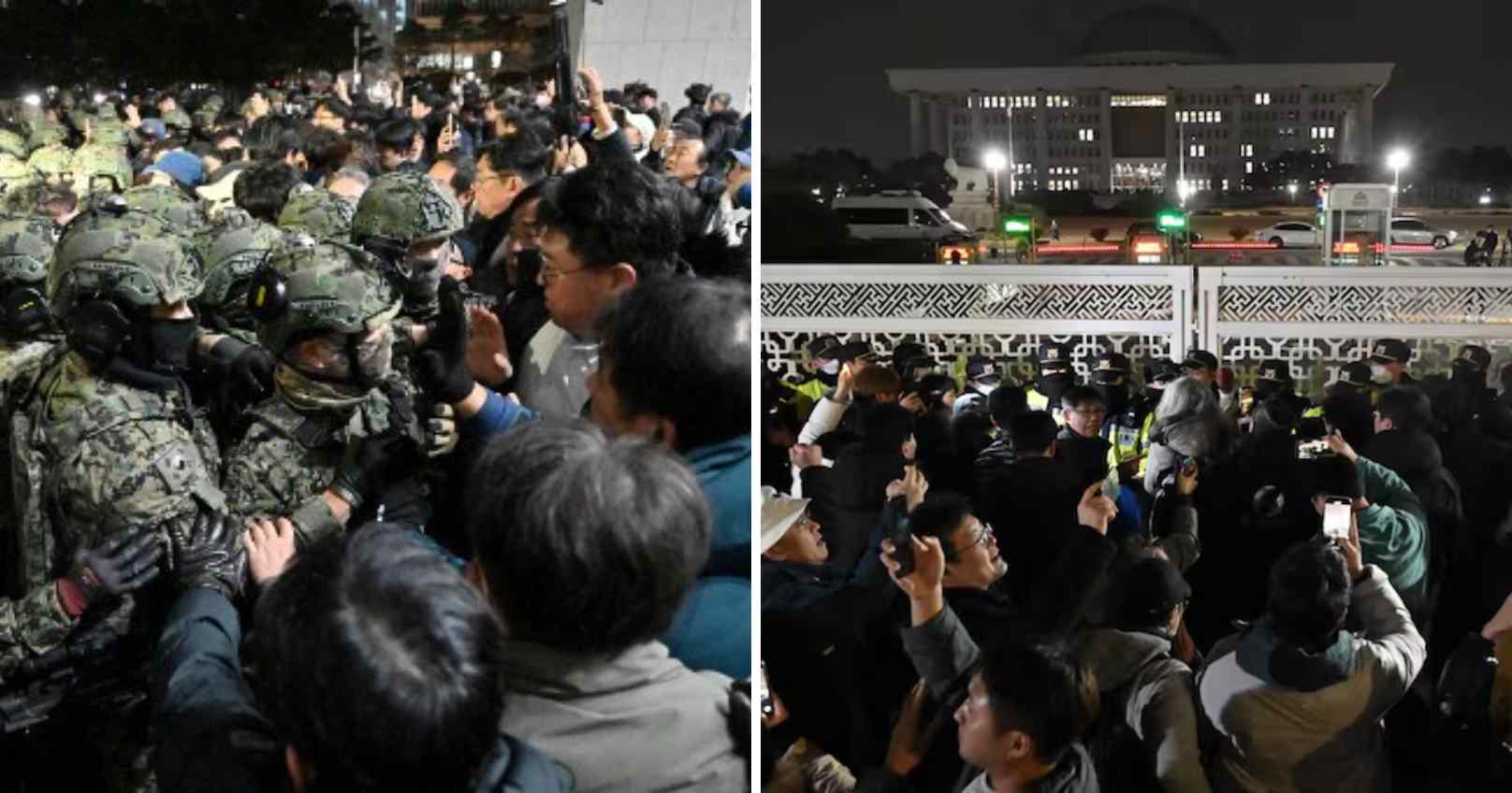South Korea was thrown into chaos on Tuesday evening after President Yoon Suk Yeol declared martial law in a bid to eliminate "anti-state" forces, accusing the opposition-controlled Parliament of sympathizing with North Korea. The announcement sparked widespread protests, with thousands of people gathering outside the National Assembly in Seoul to oppose the decision. Violent clashes ensued between security forces and demonstrators.
In a show of force, a fleet of tanks, armored vehicles, and martial law units were seen surrounding the Parliament. Helicopters were spotted landing on the grounds, while others hovered overhead. Soldiers armed with rifles guarded the entrance of the National Assembly, preventing unauthorized access. Despite the heavy presence of military personnel, no injuries have been reported.
Protesters, some chanting "Withdraw emergency martial law," voiced their opposition to the move. The entrance to Parliament was sealed, and MPs were prevented from entering, with some reports indicating a lack of quorum to vote against the martial law declaration.
South Korea's military raised its emergency alert levels, reinforcing readiness measures in light of the ongoing unrest. As the country remains technically at war with North Korea, the military's heightened presence reflects concerns about potential escalation.
The duration of the martial law remains unclear. While it can be overturned by a majority vote in Parliament, the opposition-controlled National Assembly may present a political challenge for Yoon's administration. The country's military also announced the suspension of political gatherings that could lead to "social confusion."
In a televised address, President Yoon defended his decision, stating that the martial law was necessary to "protect" the country and eliminate pro-North Korean forces. He accused the opposition party of obstructing governance and vowed to swiftly address what he termed "anti-state elements" threatening the country's democracy.
Under martial law, all political activities, rallies, and strikes are prohibited, while media and public publications are subject to government oversight. Citizens must resume regular duties within 48 hours, and penalties are in place for non-compliance.
Yoon's controversial declaration marks a significant escalation in South Korea's political turmoil and has raised concerns about the future of the country's democracy.







